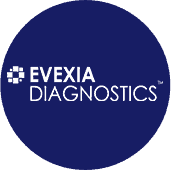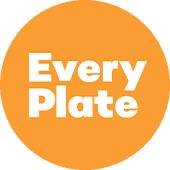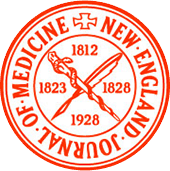“Take your vitamins.”
It’s a common phrase that you’ve probably heard since you were a child. We all know the importance of vitamins in our nutrition, but we don’t realize how deficient most people are in getting the essentials daily. A perfect and balanced diet would supply us with all the vitamins we need; unfortunately, with busy schedules, and poor dietary choices, an excellent and balanced diet is not the norm for most people today.
Many people think taking a multivitamin is enough to compensate for missing nutrients. But is it? More than half of American adults take a multivitamin every day. Still, research has yet to show that multivitamins significantly impact long-term health.
The answer? There is no one-size-fits-all solution to vitamin imbalances. Every person has a unique biochemistry, individual nutritional needs, and the ability to absorb nutrients differently. In this blog post, we will break down the world of vitamin deficiencies, signs that you may have an imbalance, how to identify and fix it, and how Knew Health can support your health journey.
Who is at risk of being deficient?
Everyone is at risk of vitamin deficiencies. People with busy lives often don’t have the time to focus on their vitamin intake and are likely missing essential nutrients without realizing it.
While various factors contribute to vitamin deficiencies, certain groups of individuals are particularly susceptible. Understanding who is most at risk can help promote proactive measures to address this issue. Pregnant women, vegetarians or vegans, older adults, individuals with certain medical conditions, and those with restricted diets are most prone to vitamin deficiencies.
Children are also susceptible to vitamin deficiencies due to their higher nutrient needs, picky eating habits, limited access to nutritious foods, and inadequate breastfeeding or formula-feeding practices. Childhood is a critical phase for growth and development, making proper nutrition essential.
Signs that you might have a vitamin deficiency
There are approximately 30 different vitamins and minerals that your body relies on food to get to function adequately. Five of the most common are iron, calcium, vitamin D, C, and magnesium. If your diet lacks any of these essential vitamins and minerals, your body won’t function properly.
Vitamin deficiencies present themselves in many different ways. Here are a few signs that your body may be lacking something that it needs:
- Fatigue or lack of energy
- Skin problems
- Thinning hair
- Brittle fingernails
- Brain fog or memory problems
- Anxiety and depression
- Mood swings or irritability
- Weight gain or weight loss
- Numb hands or feet
- Painful/weak joints or bones
It can be hard to pinpoint the exact vitamins causing your symptoms. Fatigue or lack of energy can result from many different vitamin imbalances, including iron, zinc, vitamin D, or any of the B vitamins. Skin problems can also stem from an array of deficiencies. It can be a guessing game to find the root cause of your symptoms. A vitamin deficiency test is the most efficient way to know your body’s needs.
Types of tests
Urine or Saliva Test –
Some vitamin levels can be tested with a simple urine or saliva test. You can quickly test your B vitamins, zinc, copper, calcium, and other levels this way.
Blood Test –
Blood tests are a more comprehensive method for testing vitamin and mineral levels in the body. Nearly all vitamin levels can be tested by taking a blood sample. Depending on the test, this could be a simple finger prick at home or a blood draw requiring a visit to a licensed phlebotomist.
At-home Test –
After consulting with your doctor to determine which testing kits would be most beneficial to address your health concerns, they can be ordered directly to your home. It is crucial to always do your research when ordering kits online. Be sure the company you are ordering from is reputable and works with a certified lab. You can send your results to your doctor to analyze them and provide recommendations.
Lab Work at a doctor’s office –
If you prefer to have your testing completed at your doctor’s office, schedule a visit first to determine which tests would be most beneficial to address your health concerns. Your doctor can order a blood test through insurance or as a self-pay patient or complete a urine test during your visit, depending on which test is administered.
Your results
The results from your test should take at most a week or two. It is essential to have your doctor review your results. Lab results can be tricky to interpret, and getting an expert to check and make recommendations is always a good idea.
If you have a deficiency, consider getting the vitamins your body needs from food first. Supplementing your vitamin intake with pills is never the same as a healthy and balanced diet. Your doctor can help you determine which foods to add or increase. An integrative medicine doctor, nutritionist, or health coach are great resources too.
If the thought of completely changing your diet to compensate for your deficiency is overwhelming, or if your deficiency is severe, adding daily supplements might be a good option for you. Talk with your doctor or health coach to create a plan for introducing each supplement into your routine, including monitoring your symptoms. Ignoring deficiencies can lead to a worsening of symptoms and sometimes disease.
How Knew Health can support you
At Knew Health, we are dedicated to empowering Members to take control of their health and well-being. We have removed the barriers many people face when determining their vitamin deficiencies. We do this by offering a monthly membership that offers:
- One-on-one health coaching
- Functional medicine consultations
- No-cost and discounted lab tests and kits through our trusted and certified lab partner,
- Access to discounted high-quality supplements
- An annual wellness allowance.
These services can help you get to the bottom of your vitamin imbalance and on your way to a healthier version of yourself. Knew Health Members can access these services in their Member Portal or by scheduling a call with us to help you navigate your wellness journey.
If you want to learn more about becoming a Knew Health member, take the first step towards prioritizing your well-being by calling us at 855-542-0050 or scheduling an appointment with our Care Team.
Disclaimer: This information is provided for educational and informational purposes only. It is being provided to educate you about how to take care of your body and as a self-help tool for your own use to reach your health goals. It is not intended to treat or cure any specific illness and is not to replace the guidance provided by your own medical practitioner. This information is to be used at your own risk based on your own judgment. If you suspect you have a medical problem, we urge you to take appropriate action by seeking medical attention.
Sources:
Adkins-Ali, Carrie. “The ABCs of Vitamin Deficiency: Symptoms You Can Treat Yourself.” University Health News Daily, 4 Dec. 2017, https://universityhealthnews.com/daily/nutrition/the-abcs-of-vitamin-deficiency-symptoms-you-can-treat-yourself/.
“Do Multivitamins Make You Healthier?” Harvard Health Publishing, 7 Apr. 2022, www.health.harvard.edu/mens-health/do-multivitamins-make-you-healthier.
“Do Multivitamins Work? Who Should and Shouldn’t Take Them.” Cleveland Clinic, 30 Aug. 2022, https://health.clevelandclinic.org/multivitamins-are-they-worth-it/.
Giampapa , Vincent MD. “HOW TO DETERMINE YOUR NUTRIENT DEFICIENCIES.” Healthy Cell, 14 Sept. 2021, www.healthycell.com/blogs/articles/how-to-determine-your-nutrient-deficiencies.
Ogletree, Kelsey. “What Doctors Want You to Know About Vitamin-Level Testing.” The Upside, www.vitacost.com/blog/vitamin-level-testing/.
Salamon, Maureen. “Good Intentions, Perilous Results.” Harvard Health Publishing, 1 Jun. 2023, www.health.harvard.edu/staying-healthy/good-intentions-perilous-results.










































